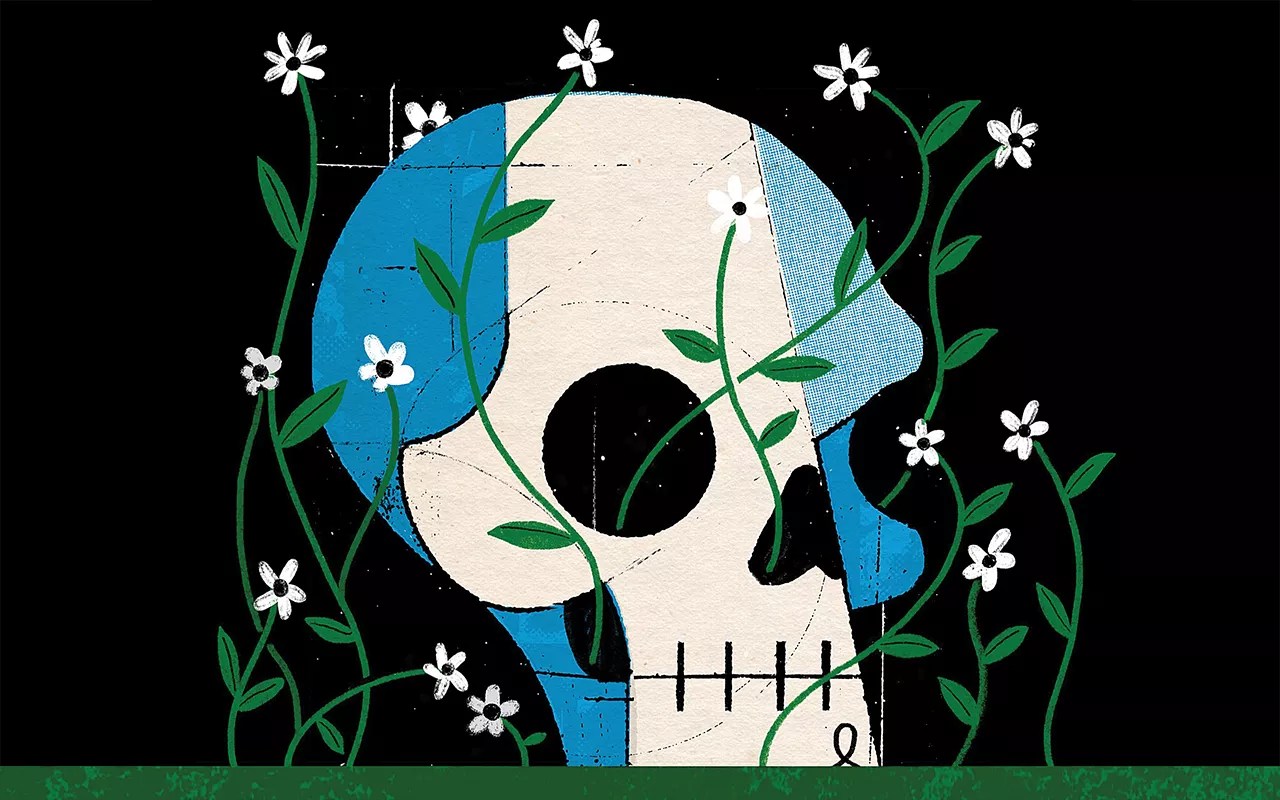
Jay Vollmar

Audio By Carbonatix
When her mother died unexpectedly ten years ago in Tucson, Caitlin Lindquist found herself trying to piece together what her mother would have wanted to be done with her body.
After settling on cremation, Lindquist had recurring nightmares where she saw her mother’s body burning. She realized she didn’t want that for her own body after she died; more important, she didn’t want her two sisters, who will be in charge of her after-death care, to have those stressful dreams.
Then one day, Lindquist came across an article about natural organic reduction, a practice in which the human body is composted in a vessel with alfalfa and wood chips, where it turns into nutrient-rich soil. Since her mother was a botanist, Lindquist believes that would have been the perfect option for her.
“She would talk to my sisters and I about concerns about global warming and the depletion of resources and water and how that was going to be a huge issue in the future,” Lindquist recalls. “I really wish I could have given that to my mother. I think that she would have appreciated the opportunity to be recycled, so to speak.”
Now the 43-year-old is seizing the chance to select natural organic reduction for her own remains, since in May Colorado became the second state to legalize human composting, following Washington in 2019.
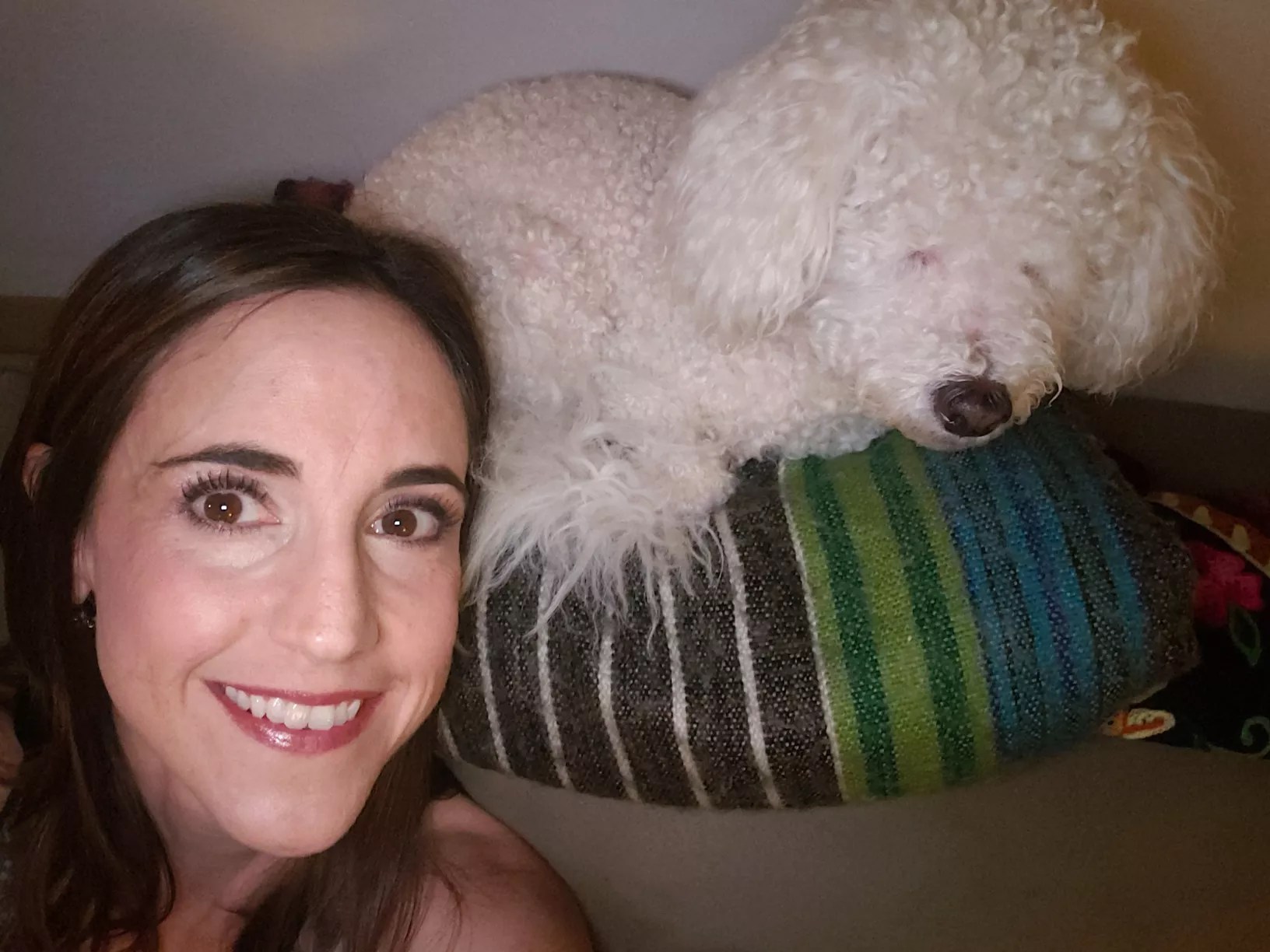
Though she’s only 43, Caitlin Lindquist has her memorial and burial all figured out. She plans to use natural organic reduction.
Caitlin Lindquist
Before the last legislative session, lobbyists hired by Recompose, the company that patented the natural organic reduction process, approached state representative Brianna Titone. They thought she would be comfortable talking about death because of her background as a scientist and her work with NecroSearch, a service that trains volunteers to help law enforcement search for dead bodies. Titone agreed to co-sponsor a bill to legalize the service.
“I had never really heard about it before, but when I did hear about it, it sounded like something that really fit in with the way people think about Colorado and being close to nature,” Titone says, joking that it was the only bill anyone really wanted to talk with her about this session.
To Titone, that interest showed how much the environment means to Coloradans; she equates it with people buying electric cars or installing solar panels to minimize their carbon footprint.
“That’s why a lot of people moved here to Colorado: to be with nature,” she adds. “We come from nothing; we end up as nothing. I think that’s why people really can gravitate toward this, because it’s probably the most natural thing that you could possibly do when you die.”
The legislation passed by a wide margin, unanimous save for a few abstentions in the Senate and a 41-18 vote in the House. One entity that opposed the measure was the Colorado Catholic Conference.
According to Mark Haas, director of public relations for the Archdiocese of Denver, the church does not believe that natural organic reduction promotes human dignity. Although the Vatican hasn’t specifically addressed body composting, burial is the church’s recommended choice. Cremation is also allowed if ashes are kept sacred and not scattered.
“Now that this practice is legal, we would just want Catholics to know that ‘human composting’ is not a practice that is approved by the Catholic Church,” Haas says. “The Catholic Church teaches that the human body is sacred, and the dignity of the human person is the foundation of a moral society. The reduction of human remains into soil is not consistent with Christ’s teachings on the resurrection of the body and the unique dignity of each human person.”
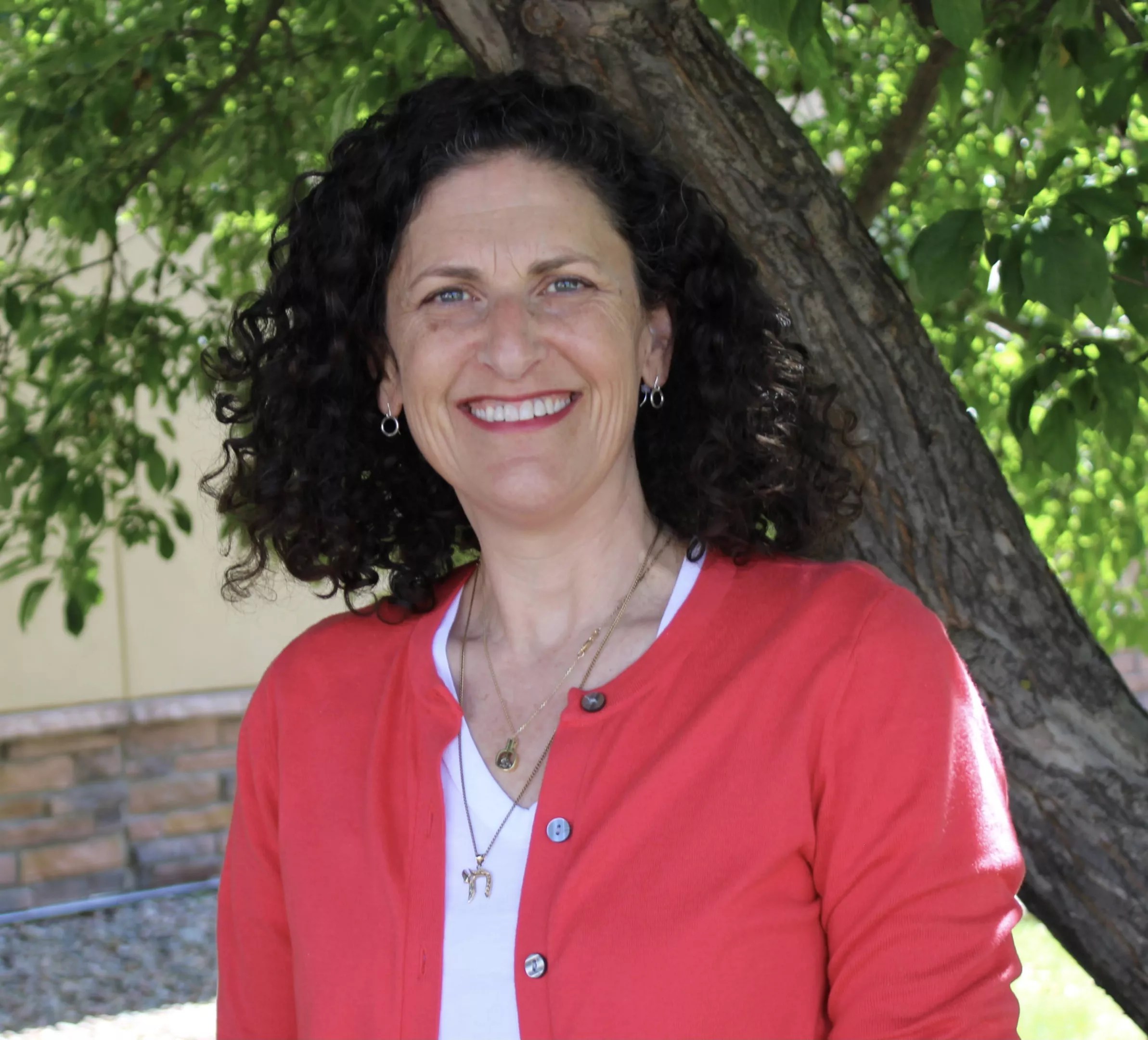
As director of pre-planning at Feldman Mortuary, Jamie Sarche’s job is to help people plan for their deaths.
Jamie Sarche
Jamie Sarche, director of pre-planning at Feldman Mortuary, helped advocate for the legislation. Colorado’s oldest family-owned mortuary, the Jewish funeral home has long practiced green burial, without embalming chemicals or coffin linings, to help the body decompose faster. After the measure passed, Feldman partnered with Return Home, a funeral home in Washington that’s been offering natural organic reduction since it became legal in that state; Feldman hopes to have its own facility ready in 2022. The mortuary is also working with Natural Funeral, a Colorado company that is just beginning to build vessels.
Return Home keeps reusable vessels containing bodies in a temperature-controlled facility, monitoring them closely as they decompose. The facility is designed to allow oxygen to flow through the vessels, causing microbes in the body to quickly transform the body into soil. In as little as sixty days, people can return to the earth, according to the Return Home website. Feldman Mortuary president Jim Cohen, who is the fourth generation of his family to own the Jewish funeral home, describes the facility as a “light industrial care center,” where science takes the lead while bodies are treated with dignity. He emphasizes that once the process is complete, no DNA is left in the soil; in the case of bodies that hold screws, rods and pacemakers, the metal is simply filtered out.
Each body yields about one cubic yard of soil, enough to fill the back of a standard pickup truck. As part of Feldman’s agreement with Return Home, families of the deceased can receive a portion of the soil for personal use while the rest goes to different environmental projects around Washington State, including land reclamation. Return Home also partners with a paper mill to reinvigorate the forest that the mill uses to make paper.
Colorado law does not allow the soil to be sold, commingled with soil from other people without consent, or used to grow food for human consumption, though it can be used to grow flowers and trees. Feldman Mortuary is working with the Colorado Department of Natural Resources to identify places in the state that might benefit from soil enrichment.
Natural organic reduction is a more environmentally friendly option than cremation or traditional burial, according to Sarche, and the cost is about the same as burial. Embalming chemicals used to preserve bodies for traditional burial aren’t good for the soil in cemeteries, she adds, and many coffins include non-compostable fabrics and metals, leaving debris in the earth long after a body decomposes. Natural organic reduction accelerates the process by placing organic matter directly next to the body.
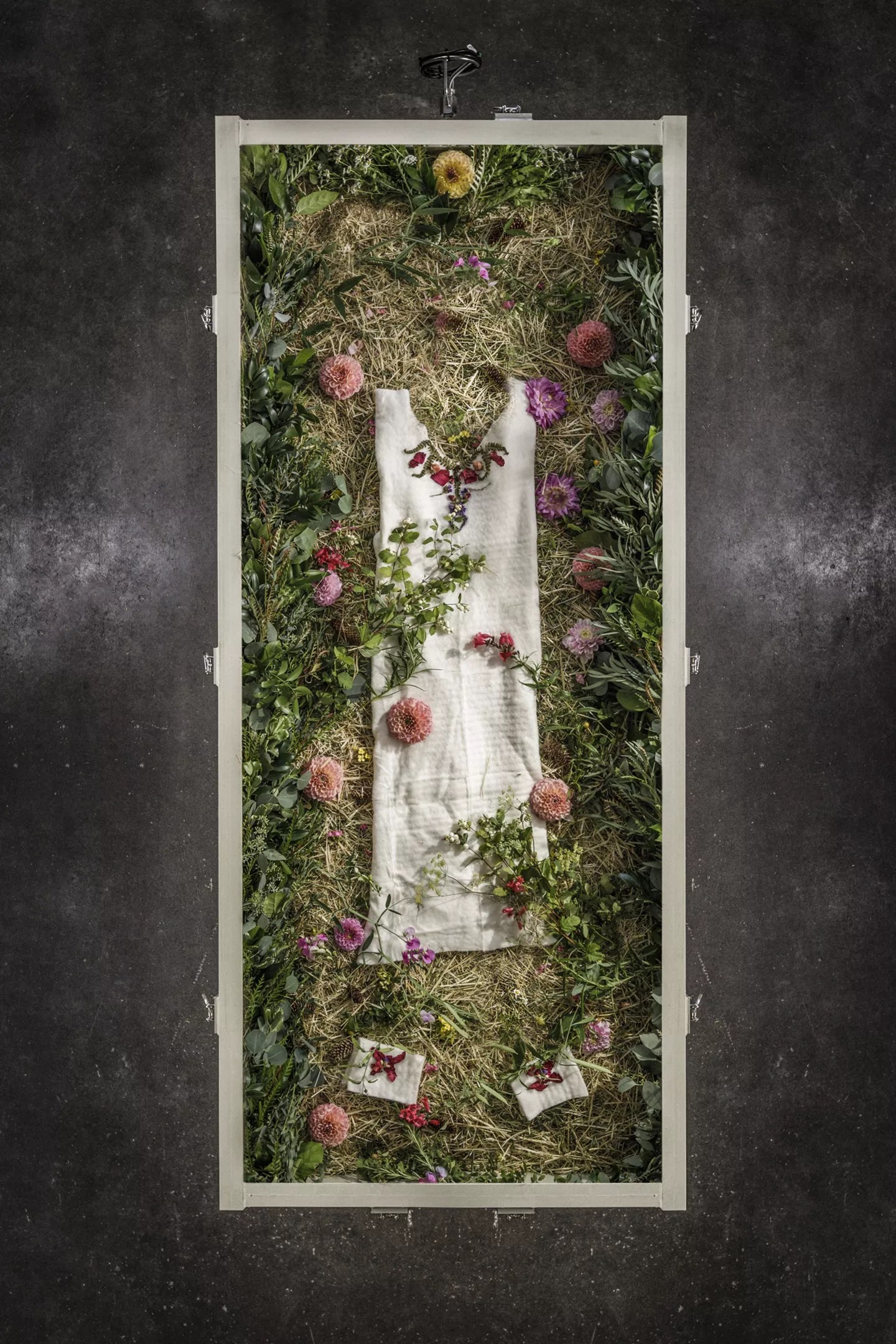
Vessels used for natural organic reduction are cleaned out and reused after each body is fully transformed into soil.
Return Home
Cremation has environmental drawbacks, too. “I’m very motivated for people to get what they think they’re getting,” Sarche says. “Many people who choose fire cremation do so because they believe it to be environmentally friendly. They think because they’re not using up space with a cemetery plot that they’re making the best choice for the earth.”
But a single cremation emits 500 pounds of carbon dioxide into the atmosphere and burns 30 gallons of fossil fuels, she explains. In the United States, cremations emit 250,000 tons of carbon dioxide each year.
Cohen also suggests that Lindquist’s nightmares are closer to reality than most people realize. “They just think, ‘Oh, cremation! I close my eyes, wiggle my nose and – poof! – I’m ash,'” he says. “No! Fire cremation is the application of high heat and flame right to the body. These bones get charred, and they don’t get consumed by that process. They’ve got to then be removed, and then it’s got to be pulverized, and then you get this fine dust of pulverized bone.” That pulverized bone dust comprises the ashes most people associate with cremation.
Cohen sees natural organic reduction as a gentler way to honor the body. “We live our entire lives working out and putting this food into and caring for this vessel that we have,” he says. “I don’t know why that would stop at the time death occurs.”
One of Feldman’s first clients to select natural organic reduction was an avid gardener. His family plans to distribute their portion of the soil derived from his body among themselves and their close friends to honor his legacy by growing plants, Sarche says, “living his values” even in his death.
Natural organic reduction allows people to select mementos with which they can be buried, such as flowers or notes, as long as they can be composted. The chance to personalize the process is part of why Lindquist chose it. She knows that natural organic reduction won’t be for everyone, especially those with certain religious beliefs, but from personal experience, she knows that traditional cremation and burial methods aren’t for everyone, either.
“I thought that there was one way to do it: ‘Of course I’ll be cremated, and whoever wants my ashes will have them, and they can dump the rest of me into the Grand Canyon or the ocean or whatever,'” she recalls.
Cohen frequently deals with individuals who don’t know what their deceased loved one would have wanted. In the case of an unexpected death, people tend to choose the path of least resistance. Given time to prepare, they’re more likely to choose an alternative option like natural organic reduction.
“When I’m on the golf course or at a dinner party…people are so interested,” he says. “Their eyes light up.”
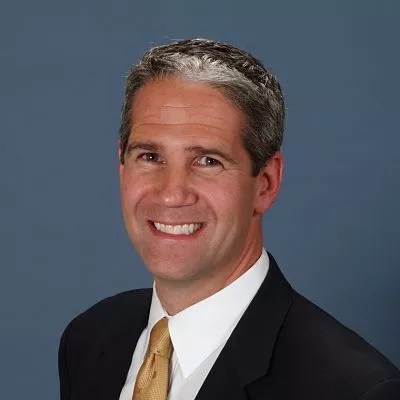
Jim Cohen runs Feldman Mortuary.
Jim Cohen
As director of pre-planning, it’s Sarche’s job to talk to people about death and help them draw up an official plan for after they die. Her clients usually come to her too late, she says, when they’re already overwhelmed by thinking about the end of their life. She did her own planning at 42, close to Lindquist’s age.
“It’s more of a societal taboo that says we’re not allowed to talk about death, and that’s not healthy,” Sarche says. “Death is the only experience aside from birth that each of us will have.”
When Lindquist met with Sarche, they talked about options including natural organic reduction, and she quickly knew it was for her.
She recently shared her choice with her father and one of her sisters during a broader discussion. “If you have these conversations when you’re healthy and you’re lucid, I think it can bring people closer,” Lindquist says. “It’s a very intimate conversation. You’re trusting someone with something that, when you’re gone, you don’t have any control over. It can be a really beautiful experience.”
Although she’s interested in programs that use the soil to heal burn scars caused by forest fires, Lindquist made sure to let her family know that what they do with the soil from her body is entirely up to them. “If you want some mulch, take it; if you don’t, that’s cool, too. I’m not going to be affected; I will be dead,” she says. “I’m not going to be offended if you don’t want to put me in your garden.”
Lindquist isn’t overly morbid; a realtor working in metro Denver, she hopes to live a long life and die far in the future. But the fact that her family won’t have to deal with the stress of planning her memorial service or making difficult choices about what to do with her remains gives her some peace now.
“There is something really liberating about it,” she says. “It’s kind of a beautiful thing to think about all of the nutrients and all of the energy that our bodies have, and the possibility that, even after I die, I can help things grow.”